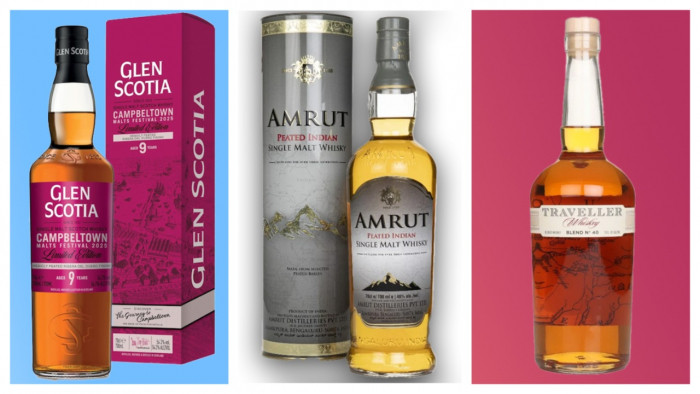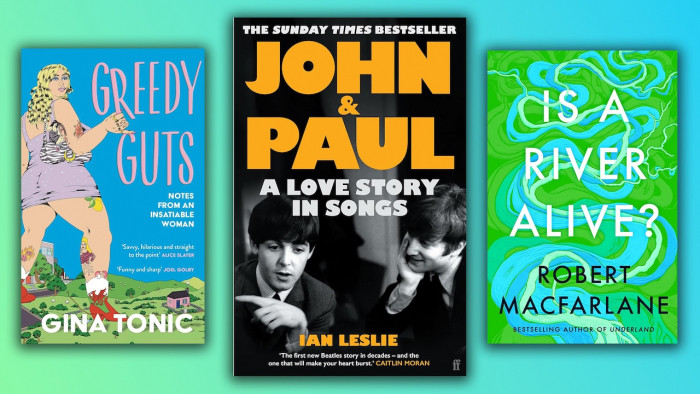The ShortRead of 10th December

Anger is an Energy: My Life Uncensored
Authors: John Lydon
What's the story: Still looking for your Dad's customary autobiography for Christmas? Call off the search. He doesn't even need to be a reformed punk to enjoy the insights into Rotten's colourful life. The front man of the Sex Pistols describes the chaos and confusion of his early years, the punk scene and the "quiet" twilight of jungle appearances and butter adverts. An insightful dip into the mind and life of one of the biggest icons of the 1970's
Release date: Out now
Extract
Trials and tribulations!’ I wrote in the early ’80s, trying to come to grips with the chaos and confusion in which I entered the world. ‘When I was born, the doctor did not like me/He grabbed my ankles, held me like a turkey/Dear Mummy, why d’you let him hit me/This was wrong, I knew you did not love me.’ Three verses later you arrive at the conclusion that I was a very disgruntled baby. That song, ‘Tie Me To The Length Of That’, I’m really proud of. At the time on TV, there were a lot of medical programmes where they were showing actual births. They were breaking new ground about what you could actually show, so watching all these babies popping out all over the shop, I was like, ‘Look at that, they’re smacking that poor little babby’s bottom as it comes out.’ They do it with good reason, but I was just thinking, how trau- matic must that be, from the sanctity of the womb to, ‘There’s a good slap on your backside, fella!’
My father was furious when he heard the song, because there’s a reference to him, the ‘stupid drunk – then the bastard dropped me’. This was a story my aunt told me, and one my mum later reiterated, that he turned up drunk, the proud father. He’d taken a day off work and, in the panic of it all, one thing led to another. I was born in the early wee hours of the 31st, in the bitterly cold January of 1956, and he’d been ‘panicking’ all night.
He was furious at his portrayal. ‘It whaddn’t loike dat! Well... it moighta happened but not for da reasons yer t’ink!’ Poor Daddy. I wasn’t doing it to be spiteful or get back at him. As I say, I was just trying to translate into song the emotions I must’ve been going through as a newborn. That’s why I love writing songs; it’s absolutely researching myself to the nth degree.
There’s a picture from my own parents’ wedding which is of fab- ulous interest to me because there, in the far-right corner, is my Auntie Agnes holding a baby. The most likely explanation is that this baby must have been me. So: I’m a bastard! In recent years, I’ve even had to deal with other children apparently born to my mum out of wedlock. I never could get honest answers out of all of the relevant family members. None of them like talk, everything is hush-hush, and so everything is a mystery. Certainly, until I’ve sorted out the mystery in my own life and my own position, I find it very difficult to deal with other alleged family members.
I had no birth certificate, and I suspected I possibly wasn’t born in London because maybe my father was worried about being drafted for National Service, so he had to duck and dive a bit. For obvious reasons, I have to be vague about it, as indeed my mother and father were with information about themselves, or anything at all. It was like trying to get blood out of a stone. ‘Hello, am I a member of this family?’ ‘Well, ye know...’ that would be my mother’s sense of humour, which was very hard to grasp when you’re young. It kept me in a constant state of alertness – to come back at things from another angle. So many games of noughts and crosses your parents can play, teasing their children. It all becomes very useful in adulthood.
It taught me to be sharp. Rather than them just ignore you, and tell you about the tooth fairy – it was a higher level than that. They’re not plying you with fantasy. It was obvious in our house that if Santa Claus tried to come down the chimney, one, he’d be burnt, and two, he’d be beaten to a pulp as a very suspicious char- acter – a priest of child-molestation quality!
In them days, it was a little bit different to now. You didn’t trust no one. Mum and Dad were very backwards folk – not dumb, they were clever in their own way, because they were survivalist – but as to how situations in England worked, they always felt manipulated.
My dad, John Christopher Lydon, came from Galway, and he was used to working on all manner of heavy-duty equipment. He came over to London at fourteen, looking for work on the building sites, and he quickly got a licence so he could drive cranes and things. He’d never seen himself as a shit-shoveller.
His father was a violent, brawling, weird thing. He came to England before my father, and he lived nearby, but the two never liked each other very much. My dad was always over there at his place, trying to connect somehow. It was very grim. We used to call him the ‘Owl Fella’, as in the Old Fellow – he never looked much like an owl. He was a prolific smoker. He used to smell of cigarettes all the time, and he always had a fag butt sticking out at the corner of his mouth. He talked very guttural, and it was hard to make out what he was saying, because he was obviously a fully fledged alcoholic, and a definite playboy for the prostitutes. It was very odd watching their relationship.
My mum, Eileen, was very loving, but in a very quiet way. There wasn’t much said. That’s all you need when you’re little – attention from adults, but the right kind of attention. Mum always had something wrong going on health-wise. They were only seventeen or eighteen when they married and started having us.
My mother’s family, the Barrys, came from County Cork – a place called Carrigrohane. Apparently they met while he was work- ing there. We’d have to go to their farm every summer holiday, all to please my mum, really. They could hardly bear us and, annoyingly, we had to tolerate them. They’d sit around not talking to each other. My granddad and grandmother from my mother’s side
weren’t big talkers. In fact, the whole family would sit in silence for days, but for forcing words out of them. A very quiet way of being – very strange. That would drive my dad spare, because Dad was a talker, in his own way.
There was some kind of resentment buried about my father. They wouldn’t talk to him, but he endured it. I think it was all to do with... he wasn’t good enough for her, which was a very strange proposition, because again years later we find out that my grand- mother from my mother’s side was ostracized from her family for marrying Jack Barry, my mother’s father, who was something of a war hero in the ‘fight for independence’, ha ha.
Apparently her side ‘had money’ – whatever that means. It’s hard to explain outside of Ireland, but money meant you owned the farm. Jack built his own farm after the war, when the South won their rights. So he obviously did well for himself, but he was pre- judged, and the Irish can be incredible snobs – much more so than anything in Britain, even with the class structure. It’s always lurking there.
Life for us in London was very inner-city and deprived. Every- one around us was piss-poor. We had no concept of what money really was. We lived on Benwell Road, which is where Arsenal have now built their Emirates Stadium. It was right by the railway bridge, in a Guinness Trust block called Benwell Mansions. There was a shop out front that was occupied at the time we moved in by a tramp called Shitty Tom. You went down a hallway, and we lived around the back yard in two rooms – a kitchen and a bedroom, with an outdoor toilet, which was available to the public. You’d find drunks passed out in it at night, which meant we had to grow up very accustomed to using the pisspot. There was also a bomb shelter there, but because people used it to dump rubbish, it was full of rats.
For more excellent reads, check out our previous choices below - just click on the link:
The MeatLIQUOR Chronicles by Yianni Papoutsis and Scott Collins
Peripheral by William Gibson
THE WORLD OF ICE AND FIRE BY GEORGE R. R. MARTIN
REVIVAL BY STEPHEN KING
No One Gets Out Alive by Adam Nevill
A Brief History of Seven Killings by Marlon James
Extinction Game by Gary Gibson
Perfidia by James Ellroy
Acceptance by Jeff VanderMeer
The Pointless Book by Alfie Deyes
A Possibility of Violence by D.A. Mishani
Personal by Lee Child
COLORLESS TSUKURU TAZAKI AND HIS YEARS OF PILGRIMAGE by HARUKI MURAKAMI
Fool's Assassin by Robin Hobb
Breakfast with the Borgias by DBC Pierre
The Final Silence by Stuart Neville
The Traitor's Heir by Anna Thayer
Cop Town by Karin Slaughter
Half a King by Joe Abercrombie
Heartman by M.P. Wright
Lobsters by Tom Ellen & Lucy Ivison
Want You Dead by Peter James
Caught Short by Anthony Horowitz
No Harm Can Come To A Good Man by James Smythe
The Murder Bag by Tony Parsons
The Sex Lives of Siamese Twins by Irvine Welsh
Annihilation by Jeff VanderMeer
Natchez Burning by Greg Iles
Who is Tom Ditto by Danny Wallace
The Girl who saved the King of Sweden by Jonas Jonasson
(Image: Flickr/Kate Hiscock)
Latest
Related Reviews and Shortlists


The best whisky taste tested









